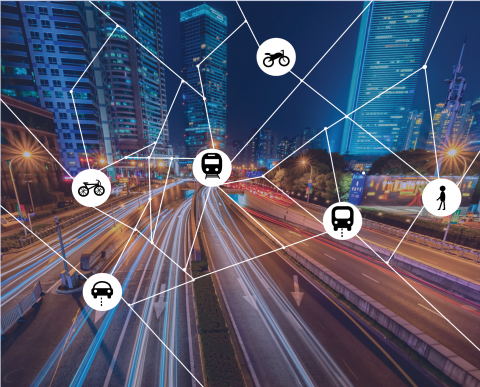Exploring Urban Mobility: Using Data to Solve Problems of the Future
Our cities are becoming increasingly “connected.” Cars, traffic signals, and even the roads themselves are utilizing new technologies to communicate with one another— transmitting, analyzing, and responding to data. A single connected (wifi-enabled) car may transmit up to 25 gigabytes of data an hour to the cloud. And with autonomous vehicles gradually being added to the system, and constant innovations in personal and industrial vehicle design happening daily, our society faces a host of questions about the design of public and private transportation systems that are sustainable, equitable, cost effective, and protect values of privacy and transparency.
The integration of all these digital technologies is transforming our future transportation systems. With this future in mind, the General Motors Global Corporate Giving Foundation is supporting EDC’s “Exploring Urban Mobility: Using Data to Solve Problems of the Future” project, which will support today’s students in thinking about future urban mobility challenges.
EDC’s Oceans of Data Institute (ODI) will build, pilot and distribute two blended learning modules for high school science and engineering classes, in which students will analyze authentic data sets to develop a solution for a problem of urban mobility, and support their solution with evidence. The new modules will leverage ODI's collaboration with another EDC project, Zoom In, an NSF-funded teaching and learning platform that combines data analysis tools with supports for students, and helps them make and support arguments and explanations using data as evidence.
The modules' goals are:
- To build high school students' skills in using data to solve real-world problems, in ways connected to STEM career paths; and
- To support high school engineering, math and environmental science teachers in teaching data skills that are called for in new standards, and connect to STEM careers.
ODI will create two new interactive teaching modules, test and revise the modules with teachers in Detroit and New York City, and disseminate and support the implementation of the modules in these two cities, and throughout the country.

